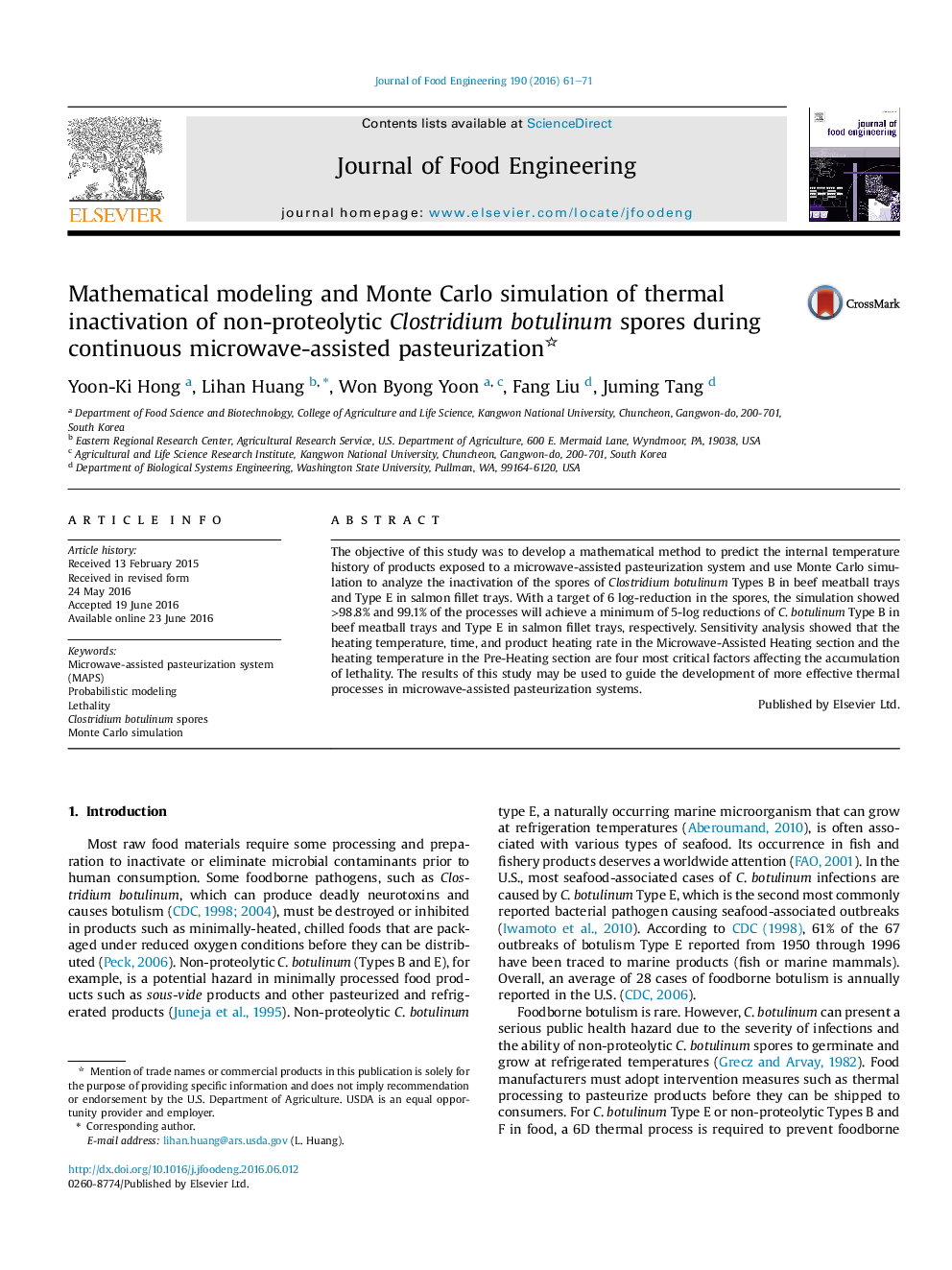| کد مقاله | کد نشریه | سال انتشار | مقاله انگلیسی | نسخه تمام متن |
|---|---|---|---|---|
| 222564 | 464278 | 2016 | 11 صفحه PDF | دانلود رایگان |
• Microwave-assisted pasteurization (MAP) is a novel thermal process.
• It can be used to process perishable products that need extended refrigerated storage.
• A mathematical model was developed to simulate the temperature in the cold spot.
• Monte Carlo simulation was used to evaluate the effect of processing parameters on lethality.
• The results may be used by the food industry to design and optimize MAP processes.
The objective of this study was to develop a mathematical method to predict the internal temperature history of products exposed to a microwave-assisted pasteurization system and use Monte Carlo simulation to analyze the inactivation of the spores of Clostridium botulinum Types B in beef meatball trays and Type E in salmon fillet trays. With a target of 6 log-reduction in the spores, the simulation showed >98.8% and 99.1% of the processes will achieve a minimum of 5-log reductions of C. botulinum Type B in beef meatball trays and Type E in salmon fillet trays, respectively. Sensitivity analysis showed that the heating temperature, time, and product heating rate in the Microwave-Assisted Heating section and the heating temperature in the Pre-Heating section are four most critical factors affecting the accumulation of lethality. The results of this study may be used to guide the development of more effective thermal processes in microwave-assisted pasteurization systems.
Journal: Journal of Food Engineering - Volume 190, December 2016, Pages 61–71
